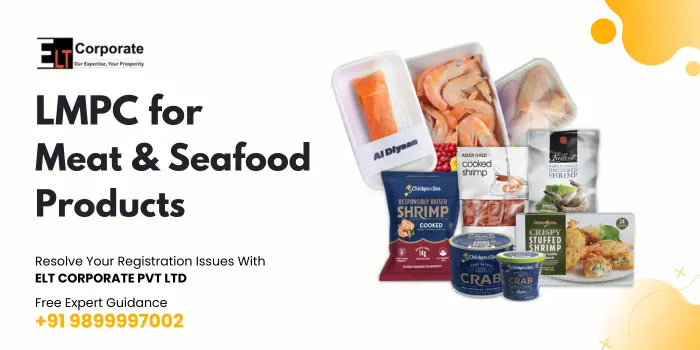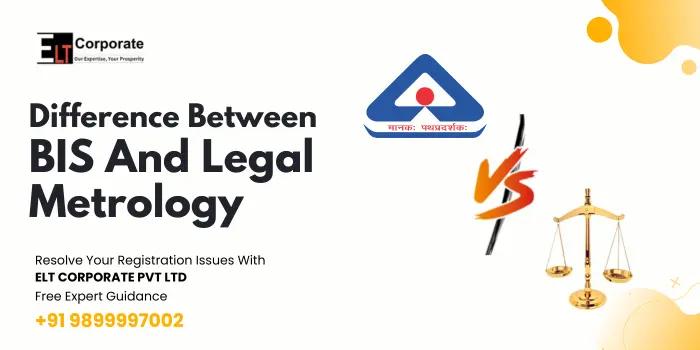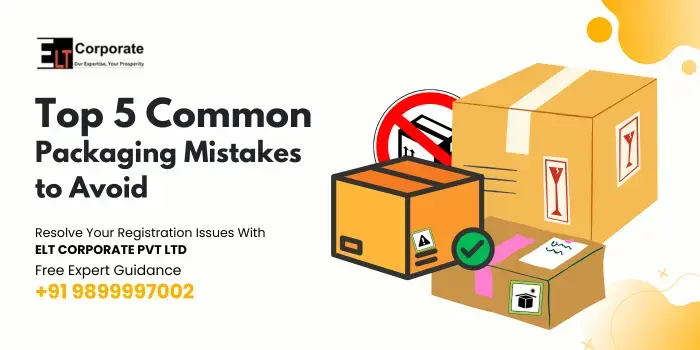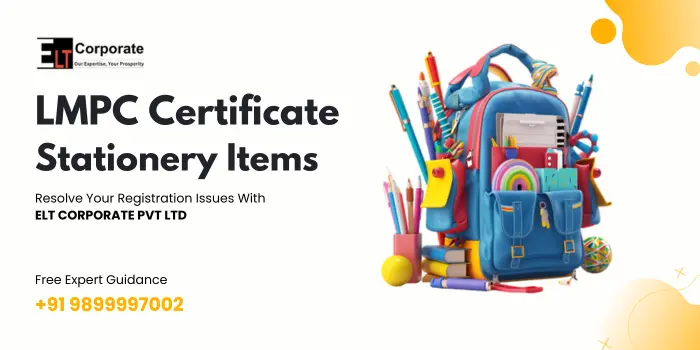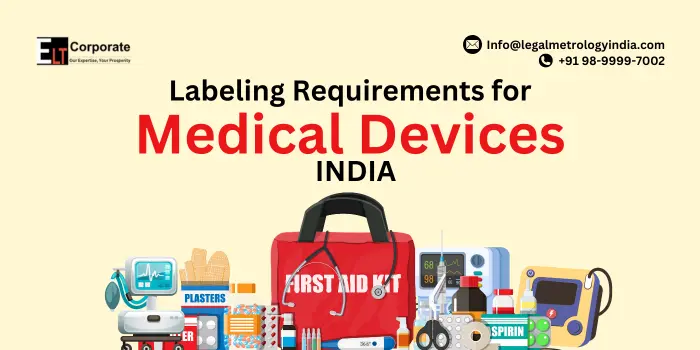LMPC for Packaged Meat and Seafood Products
Let’s understand why LMPC for packaged meat and seafood products is crucial. LMPC stands for Legal Metrology Packaged Commodities, which are part of the LM Act, 2009. These rules are necessary for all pre-packaged products, including meat and seafood, sold in India. They confirm that mandatory details such as weight, price (MRP), expiry date, manufacturer details, and storage information are printed clearly on the packaging. This supports consumer protection and ensures transparency in trade. Through this blog, you’ll know how LMPC applies to packaged meat and seafood products, the registration procedure, and much more. What Is LMPC? LMPC stands for Legal Metrology (Packaged Commodities) Rules, governed by the Legal Metrology Act, 2009. It governs packaging, labelling, declarations, and pricing for all pre-packaged goods sold in India, including meat and seafood products. It ensures accurate weights, clear pricing, and consumer safety through mandatory labelling. Do LMPC Rules Apply to Packaged Meat and Seafood? Yes, any meat or seafood product that is prepackaged (packed without the buyer’s presence) should follow the LMPC rules. Applies to: Why Is LMPC Important For Packaged Meat & Seafood? The LMPC certificate ensures that packaged meat and seafood are accurately labeled, fairly priced, and safe for consumers. It helps in avoiding cheating, supports transparency, and protects buyers’ rights. Procedure To Obtain LMPC Certificate For Packaged Meat and Seafood Products To legally sell pre-packaged meat or seafood, manufacturers/importers should get LMPC registration from the Department of Legal Metrology under the Ministry of Consumer Affairs. You are eligible if you are a manufacturer, packer, or importer of pre-packaged meat or seafood products that are sold in India, either offline or online, and not packaged in front of the consumer. Apply to the Controller of Legal Metrology in your state Higher bodies may inspect your packaging, labeling, and premises Upon successful verification, the LMPC registration certification is issued (valid for 1-5 years) Documents Required For LMPC For Packaged Meat and Seafood Products Here is the list of documents that you require to apply for LMPC for packaged meat and seafood products: What Is The Mandatory Declaration Under LMPC For Packaged Meat and Seafood Products? Every packaged meat and seafood should carry these mandatory declarations, Please check the table, as we mentioned some of the important declarations under LMPC: S.No. Declaration Details Required 1. Name of Product E.g., “Frozen Chicken Breast”, “Raw Tiger Prawns” 2. Net Quantity Weight in grams or Kilograms, including weight if applicable 3. Maximum Retail Price MRP Inclusive of all taxes 4. Date of Packaging & Best Before Important for perishable products 5. County of Origin Required for imported meat or seafood 6. Name & Manufacturer Indian manufacturer/Packers/Importers’ proper details 7. FSSAI License Number Mandatory under food regulations 8. Batch or Lot Number For traceability 9. Storage Instructions E.g., “Keep Frozen at -18c” 10. Instruction for Use (Optional) Cooking or throwing instructions for consumer benefits Timeline To Get LMPC For Packaged Meat and Seafood Products Usually procedure of LMPC registration for Packaged Meat and Seafood Products doesn’t take too long, however, you should know these details: S.No. Title Timeline to Obtain LMPC 1. Consultation and Eligibility Checks 1 to 2 days (approximately) 2. Documentation & Form Preparation 2 to 5 days (approximately) 3. Application Submission 2 days (approximately) 4. Inspection 4 to 7 days (approximately) 5. Approval and Certificate Issuance 9 to 15 days (may vary according to state) LMPC Rules for Online Meat and Seafood Sellers Here are the rules for the LMPC certificate for online meat and seafood sellers: Are Retailers and Butchers Selling Pre-Packaged Meat Covered Under LMPC? Yes, if a retailer or butcher packs meat in advance (not in the consumer’s presence), LMPC rules apply. However, if they weigh, cut, and pack meat after you order it, LMPC does not apply, but normally weigh and measure law still do. What are the Penalties for Non-Compliance With Packaged Meat and Seafood Products? It will lead to penalties if you don’t comply with the LMPC for packaged meat or seafood products rules: It is advised to directly contact the best regulatory consultancy and get LMPC registration for packaged meat and seafood now. Also, you can call +91 9899997002 to get your query solved in seconds. Do Importers Need LMPC Registration to Import Packaged Meat or Seafood? Yes, importers need LMPC registration to import packaged meat or seafood from the Department of Legal Metrology. It is important to have LMPC declarations printed on the product before customs clearance because improperly labeled items may be rejected. Who Regulates LMPC Compliance For Packaged Meat and Seafood? Please check the table to know that the enforcement and regulation of LMPC lies with: S.No. Regulatory Body Responsibility 1. Department of Legal Metrology LMPC registration, label compliance, and market inspections 2. Ministry of Consumer Affairs Policy formulation, legal amendments 3. FSSAI (Food Safety and Standards Authority) Ensures food safety and hygiene compliance 4. Custom Department (for imports) Checks LMPC compliance during product clearance at ports Why Choose ELT Corporate For LMPC Registration? ELT Corporate provides smooth, reliable support for businesses needing LMPC registration for packaged meat and seafood. Starting from eligibility checks to final certification, our certification, our team confirms quick, error-free compliance with Legal Metrology rules. Here we offer:

